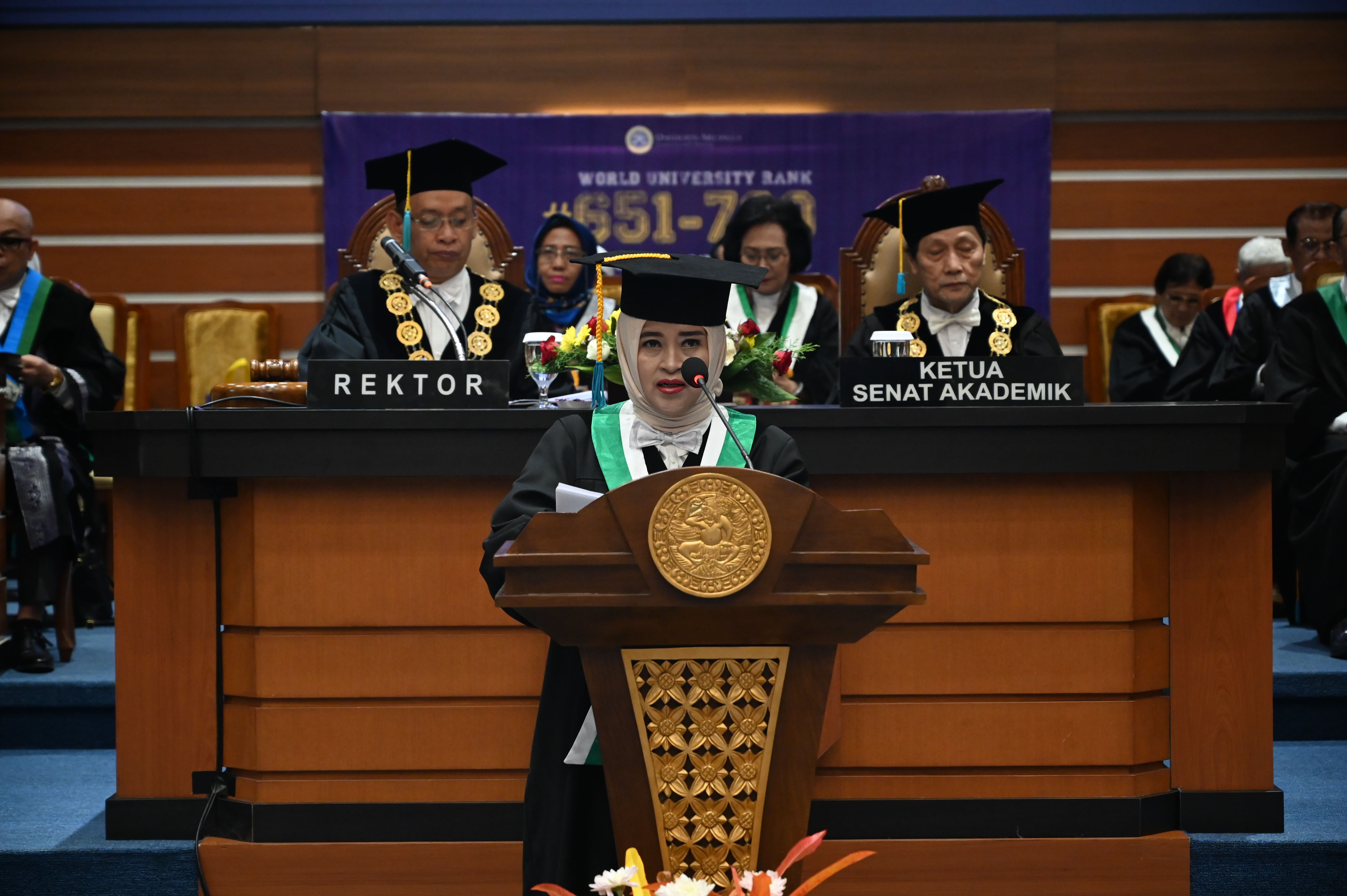UNAIR NEWS – As time goes by, the concept of wound management develops. The concept is known as the modern concept of wound care that manages wounds based on their conditions so the healing works faster.
According to Prof. Dr. Elly Munadziroh, drg., M.S. in her oration at the professorship inauguration ceremony on Saturday, November 30, 2019, disruption to healing made sufferers feel pain longer. It can cause physical and emotional stress and add the burden of the financing.
Modern wound care developing today greatly helped by the emergence of the latest innovative products in wound healing. In this development, intervention is needed regarding the addition of material to accelerate wound healing.
“In general, wound care developing now is emphasized more on interventions that examine the client or patient side from various dimensions, the physical, psychological, economic, and social dimensions. For this purpose, intervention is needed, such as the addition of material to accelerate wound healing, “said Prof. Elly in Garuda Mukti Hall, 5th Floor, Campus C, UNAIR.
Prof. Elly added that natural advanced material is highly considered to be used in supporting wound care and healing. One material that is expected in healing wounds is the use of amniotic membranes. Inside the amniotic membrane there is an active ingredient that affects wound healing, the Secretory Leukocyte Protease Inhibitor (SLPI).
“Amniotic membrane itself has been widely used for the treatment of burns, chronic ulcers, dural defects, peritoneal and genital reconstruction, plastic surgery, and also eye surgery. The active material thought to have an effect on wound healing from the amnion membrane is Secretory Leukocyte Protease Inhibitor (SLPI), “explained the woman born in 1961.
SLPI plays a role in the process of healing acute and chronic deep wounds. Not only that, SLPI also inhibits protease, controls leukocyte activity, reduces TGF-beta, anti-inflammatory, anti-bacterial, control intracellular enzymes, suppresses monocytes and matrix metallo proteinases (MMP).
UNAIR succeeded in producing a recombinant SLPI through proteomic research. Proteomics is an important part of biochemistry to understand the specific structure and function of a protein, to determine when and how proteins are expressed and their interaction mechanisms with protein compounds and other ligand compounds.
“Genomic-proteomic-based protein research has been developed at Universitas Airlangga, one of which has produced recombinant SLPI as a candidate for natural advanced material to accelerate wound healing,” said the 21st Faculty of Dental Medicine professor.
Prof. Elly hoped that SLPI products can be part of an industrial process that supports the acceleration of wound healing. With increasing SLPI production in Indonesia, it is expected to meet national needs and reduce dependence on imported materials. (*)
Author: Dita Aulia Rahma
Editor : Khefti Al Mawalia





